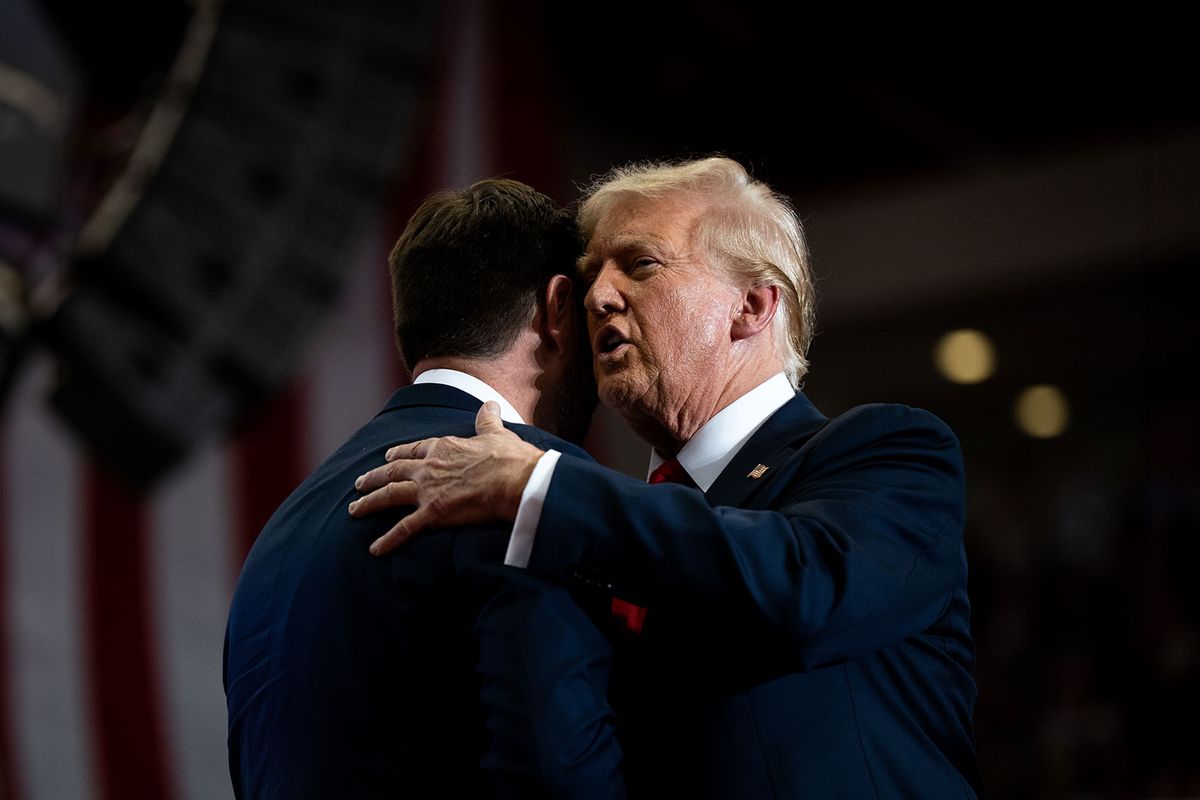Hours after President Joe Biden ended his re-election bid, an anonymous individual known only as "Robert" sent at least three major news outlets a trove of confidential leaked documents from Donald Trump's campaign. But upon receiving nuggets like the campaign's report vetting Sen. JD Vance, R-Ohio, as Trump's running mate, Politico, The New York Times and the Washington Post declined to publish any of the details.
It was the Trump campaign that first went public about the potential hack on Sunday, saying that Iranian agents were behind it but providing no evidence to back that claim. Afterwards, the news outlets published articles that focused on the alleged hacking that was potentially connected to the leak, which they described in only the broadest terms.
Those editorial decisions are a marked departure from their approach to the Russian government's hacking and leaking of emails to and from Hillary Clinton's 2016 campaign manager, John Podesta, the oft-mundane contents of which received extensive coverage.
“This episode probably reflects that news organizations aren’t going to snap at any hack that comes in and is marked as ‘exclusive’ or ‘inside dope’ and publish it for the sake of publishing,” Matt Murray, executive editor of the Post, wrote in an article published by the newspaper. Instead, “all of the news organizations in this case took a deep breath and paused, and thought about who was likely to be leaking the documents, what the motives of the hacker might have been, and whether this was truly newsworthy or not.”
On July 22, Politico began receiving emails from an AOL email address that contained the internal communications from a senior Trump campaign official, a partial vetting report on running mate contender Sen. Marco Rubio, R-Fla., and the 271-page Vance dossier, which contained a list of what the vetting team considered to be his electoral vulnerabilities. The Times and the Post reported shortly afterwards that they had received similar missives.
Politico and the Post said that two people had independently confirmed the authenticity of the documents. But none of the outlets appear to know who "Robert" is, with Politico saying that when asked about his identity, they responded: “I suggest you don’t be curious about where I got them from.”
The Trump campaign's announcement blaming the Iranians came a day after Microsoft reported that Iranian intelligence was trying to compromise the email account of a senior advisor to a presidential campaign, without specifying which campaign. Otherwise, there has been no confirmation yet from any major tech or cybersecurity company that the Iranians hacked the Trump campaign. The FBI is currently investigating the matter.
The Times told the Associated Press that it would not discuss why it did not reveal more details of the leak. Politico spokesperson Brad Dayspring said editors weighed “the questions surrounding the origins of the documents and how they came to our attention were more newsworthy than the material that was in those documents.”
Steven Cheung, a Trump campaign spokesperson, said over the weekend that "any media or news outlet reprinting documents or internal communications are doing the bidding of America's enemies."
It's a different tone from the Trump campaign's gloating in 2016, when the GOP nominee professed to "love Wikileaks" for exposing the Clinton campaign's emails and urged the Russian government to release more.



Shares